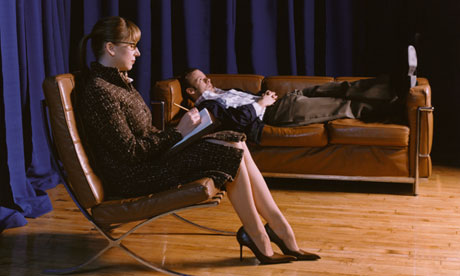
Do you suffer from a phobia? Are you fearful of heights, or dogs, or the sight of blood? Does the mere thought of lightning, or enclosed spaces, or snakes, induce panic? If so, getting your head down for a nap may help you conquer your anxiety.
Phobias are one of the most common forms of psychological disorder, with almost 10% of people reporting that they have had problems with these intense, irrational fears during the previous 12 months and perhaps a quarter of us experiencing a phobia at some point in our life.
The recommended treatment is cognitive behavioural therapy (CBT). Under the guidance of a therapist, sufferers are gradually exposed to the object or situation they fear. In so doing they learn that the disaster they dread is actually highly unlikely to happen. As a result, their fear dwindles and dies.
This technique is usually very effective – and extremely speedy, with often just a few short sessions needed to see off the phobia. But it doesn't work perfectly for everyone. The answer for this minority of phobia patients, it seems, may be surprisingly simple: schedule a nap immediately after the therapy session.
Researchers in Switzerland recently tested this theory on a group of spider phobics (arachnophobes). The participants first underwent a session of "virtual reality exposure therapy", wearing computer headsets that conjured up images of spiders. Afterwards, half of them were asked to sleep for 90 minutes; the others watched a nature documentary.
A week later the participants returned to the lab for assessment – which included exposure to a real, live tarantula. Those who had slept after the therapy session were much less fearful than those who had stayed awake. Exactly why isn't known, though the study built on work suggesting that sleep has a dual effect on memory. The idea is that sleep helps both to diminish the emotions associated with an existing memory (for example, the fear felt during previous arachnid encounters) and to store new memories (in this instance, that the spiders weren't dangerous after all).
The Swiss study, which was published in the July issue of Psychological Medicine, is far from definitive. For one thing, the number of participants was small. But it does suggest tantalising new possibilities for the treatment of anxiety and other psychological disorders. Could sleep help with other phobias or conditions? Would napping after therapy for paranoia increase its effectiveness? What effect would sleeping after an emotionally draining session for depression produce?
Certainly sleep is now attracting much more attention from mental health professionals. We've known for a long time that people with psychological problems often don't get enough good-quality sleep. But it used to be assumed that this was simply a consequence of their psychiatric disorder. Insomnia, to use the jargon, was seen as a secondary, symptomatic condition.
Now, however, there's plenty of evidence that the process can work in the opposite direction, with lack of sleep actually helping to trigger conditions such as depression, anxiety, paranoia, alcohol dependence, attention deficit hyperactivity disorder (ADHD) and bipolar disorder. One meta-analysis, for example, found that insomnia doubles the odds for later depression.
Moreover, the worse a person is afflicted by insomnia, the more likely it is that these conditions will persist. Sleep problems don't merely cause psychological problems, they also make them more severe and more difficult to shake off.
Given this causal connection, might treating a patient's sleep problems also help with any other psychological conditions they may be struggling with? It seems distinctly possible. The current evidence is very patchy: relatively little research has been carried out and what has taken place has been small-scale. Nevertheless, all the studies conducted so far have shown that CBT for insomnia can reduce symptoms of depression, anxiety, and paranoia.
Anyone who has experienced a period of insomnia may not be totally surprised by these findings. As most of us know, even a night or two of disturbed sleep can play havoc with our emotions. When that sleeplessness persists, it's not difficult to imagine how depression, anxiety and other debilitating psychological problems might follow.
If insomnia can help cause these conditions, the way back to mental health may be via improved sleep. Sleeplessness drags our mood down; eight hours solid kip can bring it back up again. Part of the solution to seemingly intractable problems such as depression, anxiety and phobias could be to help individuals sleep better, or simply take a nap after a therapy session. Perhaps the psychiatrist's couch will soon be making an unlikely comeback.
Daniel Freeman is a professor of clinical psychology at the University of Oxford. Jason Freeman is a writer and editor. Together they wrote The Stressed Sex: Uncovering the Truth about Men, Women, and Mental Illness. On Twitter they are @ProfDFreeman and @JasonFreeman100

